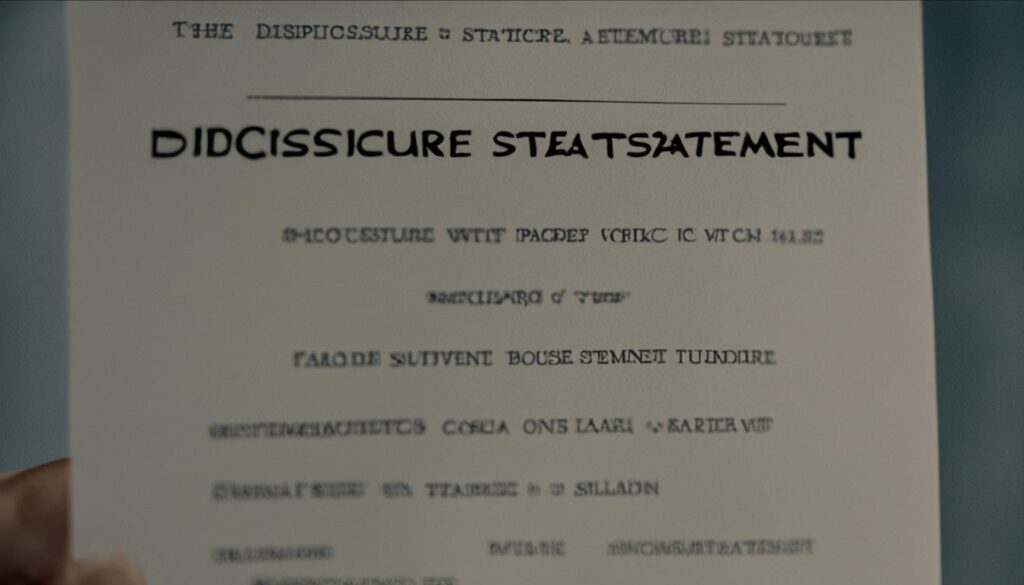Understanding Due Diligence in Real Estate
When it comes to buying a property, due diligence is a vital step in the process. But what exactly does it mean? In the real estate context, due diligence refers to the period of time between an accepted offer and closing. It is during this time that the buyer has the opportunity to thoroughly inspect the property and gather all the necessary information to ensure their investment is sound and secure.
The real estate due diligence process involves various inspections and assessments to evaluate the property’s condition, title, and other factors. This comprehensive examination allows the buyer to address any potential issues or risks before finalizing the purchase. It is a crucial part of the transaction that helps protect the buyer’s interests and ensures they are getting what they’re paying for.
Key Takeaways:
- Due diligence is the period between an accepted offer and closing in a real estate transaction.
- It allows the buyer to thoroughly inspect the property and gather information to ensure a sound investment.
- The process involves inspections, assessments, and evaluations of the property’s condition, title, and other factors.
- During due diligence, the buyer can identify any issues or risks and negotiate repairs or adjustments if needed.
- It is an essential step in the real estate buying process that helps protect the buyer’s investment.
What Happens During a Due Diligence Period?
During the due diligence period, I conduct a thorough review of the property and gather information to make an informed decision. This involves following a due diligence checklist for real estate and taking necessary steps to ensure a smooth transaction.
Step 1: Home Inspection
I start by hiring a licensed home inspector to evaluate the physical condition of the property. The inspector examines the roof, walls, doors, windows, electrical system, HVAC units, and more. This step helps me identify any potential issues or defects that may affect the property’s value or safety.
Step 2: Home Appraisal
An appraisal is conducted by a third-party professional to determine the market value of the property. Factors such as the property’s physical attributes, recent sales of comparable properties, upgrades, and amenities are taken into consideration. This step ensures that I am paying a fair price for the property and helps me make an informed decision.
Step 3: Title Search
I conduct a title search to uncover any liens, encumbrances, or claims on the property. This process ensures that I will obtain a clear title to the property. The title search also helps me uncover any undisclosed legal issues or pending lawsuits related to the property.
Step 4: Land Survey
A land survey is essential to establish accurate boundaries and features of the property. It provides a legal description of the property and helps identify any encroachments or discrepancies. This step helps me understand the property’s exact dimensions and prevents legal disputes in the future.
Step 5: Review Disclosures
I carefully review the disclosures provided by the seller, which reveal any known issues or defects with the property. This step helps me understand the property’s history and potential risks that may affect my decision to proceed with the purchase.
Step 6: Assess Homeowners Association (HOA) Rules
If the property is governed by an HOA, I review the homeowners association rules, bylaws, and covenants. This step helps me understand the restrictions and expectations within the community and evaluate whether I am willing to comply with them.
Step 7: Investigate Zoning Regulations
I investigate the zoning rules and regulations that apply to the property. This step ensures that I understand any development restrictions, historic property limitations, or other zoning requirements that may impact my future plans for the property.
By following these steps and conducting a comprehensive due diligence checklist, I can identify any issues or risks associated with the property and negotiate repairs or adjustments to the purchase price if necessary. This thorough process helps me make a well-informed decision and ensures that my investment in real estate is sound and secure.
How Long Is a Due Diligence Period?
The due diligence period in real estate plays a crucial role in the home buying process. It is the time when buyers conduct thorough inspections and assessments to ensure a sound investment. One of the key considerations during this period is the duration of the due diligence period itself.
The length of the due diligence period can vary depending on the terms negotiated between the buyer and seller. Typically, it ranges from 30 to 90 days, although more complex transactions may require a longer period.
During this time, buyers have the opportunity to thoroughly investigate the property and gather essential information. It is a critical stage where they can assess the property’s condition, verify its legality, review disclosures, and conduct other necessary investigations.
The duration of the due diligence period is specified in the Purchase and Sale Agreement (PSA). It is important for buyers to carefully consider and customize this time frame based on their specific needs and the complexity of the transaction.
The due diligence period is not only crucial for buyers to protect their interests but also to understand the importance of due diligence in real estate. It gives buyers the necessary time to make informed decisions and ensures that they are investing in a property that aligns with their goals and requirements.
Note: The image is provided for illustrative purposes only and does not represent a specific due diligence period or property.
Home Inspection
A home inspection is an integral part of the due diligence process when buying a property. It involves hiring a licensed home inspector to meticulously assess the physical condition of the property.
During a home inspection, the licensed home inspector thoroughly examines various components of the home, including the roof, walls, doors, windows, electrical system, HVAC units, and more. Their objective is to identify any potential issues or defects that may affect the property’s value or safety.
If significant issues are uncovered during the inspection, the buyer has options to consider. They may choose to back out of the offer due to the identified problems or negotiate with the seller to address necessary repairs.
A comprehensive and thorough home inspection provides valuable insights into the property’s condition, helping the buyer make an informed decision.
Home Appraisal
A home appraisal is a crucial step in the due diligence process when evaluating a property’s market value. Conducted by a third-party professional, the appraisal aims to determine the fair market value of the property based on various factors.
An appraiser considers the property’s physical attributes, recent sales of comparable properties, upgrades, and amenities to arrive at an accurate valuation. This valuation provides essential information for the lender during the mortgage underwriting process.
If the appraisal comes in lower than the purchase price, the buyer has several options. They can request another appraisal to verify the value, renegotiate the price with the seller, pay more upfront to cover the difference, or exercise an appraisal contingency clause to cancel the contract.
An appraisal is essential for buyers to ensure that they are paying a fair price for the property. It helps them make informed decisions and negotiate effectively during real estate transactions.
Sample Table: Comparative Market Analysis
Comparative Market Analysis (CMA) is a common approach to determine a property’s market value. It involves comparing the property with similar homes that have recently sold in the vicinity. Here’s a sample table showcasing the CMA for a property:
| Comparable Properties | Sale Price | Size (sqft) | Bedrooms | Bathrooms |
|---|---|---|---|---|
| 123 Main St | $400,000 | 1,500 | 3 | 2 |
| 456 Elm St | $410,000 | 1,600 | 3 | 2 |
| 789 Oak St | $395,000 | 1,550 | 3 | 2 |
Based on the comparative market analysis, the appraiser would consider factors such as property size, the number of bedrooms and bathrooms, and the recent sale prices of similar properties to determine the market value of the subject property.

Image Caption: Home appraisal is crucial for determining the market value of a property.
Title Search
A title search is a crucial step in the due diligence process when purchasing a property. It involves conducting a comprehensive investigation into the property’s ownership history to uncover any hidden liens, encumbrances, or claims that may affect the buyer’s ownership rights.
During a title search, a qualified professional, such as a title examiner or attorney, reviews public records to verify the property’s ownership and assess its legal status. This search determines if the property has a clear title, free from any undisclosed or unresolved legal issues.
The Importance of a Thorough Title Search
A thorough title search helps protect the buyer from potential legal complications and financial risks. By uncovering hidden liens or claims, the buyer can make informed decisions about the property and negotiate appropriate solutions with the seller.
Hidden liens and encumbrances discovered during the title search can include mortgage loans, unpaid taxes, outstanding judgments, or undisclosed easements. These encumbrances can affect the buyer’s ability to obtain a mortgage, transfer ownership, or enjoy full rights to the property.
“A title search helps provide peace of mind to the buyer by ensuring that they will obtain a clean and marketable title to the property.”
In addition to hidden liens, a title search can also reveal undisclosed legal issues or pending lawsuits that directly impact the property. This information helps the buyer assess the potential risks associated with the property and make an informed decision about continuing with the purchase.
Disclosure Statements and Title Searches
While sellers are typically required to provide a disclosure statement outlining any known issues or defects with the property, a title search offers an additional layer of protection for the buyer. It can uncover undisclosed issues that the seller may not be aware of or failed to disclose.
A disclosure statement usually covers aspects such as past renovations, structural concerns, plumbing or electrical problems, or environmental hazards. However, certain issues may not be included in the disclosure statement but can be discovered during a thorough title search.
Addressing Problems Discovered during a Title Search
If problems are discovered during the title search, the buyer has options for addressing them before closing the transaction. The buyer can negotiate with the seller to resolve any outstanding liens, obtain appropriate insurance coverage, or seek legal advice on how to proceed.
If the issues uncovered during the title search are significant and cannot be resolved satisfactorily, the buyer may choose to cancel the transaction altogether. This underscores the importance of conducting a careful and thorough title search to mitigate potential risks.
Land Survey
A land survey is a crucial part of the due diligence process when buying a property. It involves conducting a thorough assessment to accurately determine the boundaries and features of the land. By conducting a land survey, buyers can ensure that they have a clear understanding of the property’s exact dimensions and legal description, which is vital for future use or development.
The land survey also helps identify any encroachments or discrepancies on the property. For example, if the survey reveals that a structure encroaches on a neighboring yard, it presents an opportunity for negotiation with the seller regarding potential adjustments or even the purchase price. This can create negotiation opportunities, allowing the buyer to address any issues or concerns before finalizing the transaction.
Furthermore, a land survey plays a crucial role in preventing legal disputes. It provides an objective analysis of the property’s boundaries, eliminating any ambiguity or misunderstandings. By ensuring that the property lines are accurately established, buyers can protect their investment and avoid potential conflicts with neighboring property owners.
“A land survey ensures that the buyer receives the property they expect, with no potential boundary disputes or unexpected surprises.”
In summary, a land survey is an essential step in the due diligence process. It provides accurate information about the property’s boundaries, helping buyers make informed decisions and negotiate potential adjustments or pricing. By conducting a land survey, buyers can protect their interests and secure a property with confidence.
Disclosures
Sellers have legal obligations to provide a disclosure statement that outlines any known issues or defects related to the property. These obligations are determined by federal, state, and local laws. The disclosure statement is a crucial document that helps buyers understand the history and potential risks associated with the property they are purchasing.
Some common disclosures include information about the property’s condition, past renovations without permits, potential environmental hazards, foundation problems, and more. It is important for sellers to be transparent and honest in their disclosures to ensure that buyers are well-informed of any potential issues.
Certain federal disclosures, such as the presence of lead-based paint or asbestos, are mandatory regardless of the property’s location. These disclosures are in place to protect the health and safety of potential buyers.
Buyers typically receive the disclosure statement a few days before the closing, but they can also request it earlier in the process. Reviewing the disclosures is an essential step in the due diligence process as it helps buyers make informed decisions and understand the potential risks associated with the purchase.
Disclosure statement is a key document that provides buyers with important information about the property’s condition and potential risks.
| Key Points | Benefits |
|---|---|
| Disclosure statement reveals any known issues or defects. | Buyers can make informed decisions and assess potential risks. |
| Federal, state, and local laws determine specific disclosures. | Ensures compliance with legal obligations and protects buyers. |
| Common disclosures include property condition and past renovations without permits. | Buyers have a clear understanding of the property’s history. |
| Federal disclosures for lead-based paint or asbestos are mandatory. | Promotes the health and safety of potential buyers. |
| Disclosure statement is typically received before closing. | Buyers have ample time to review and assess the information. |

Homeowners Association (HOA) Rules
When purchasing a property governed by a homeowners association (HOA), it is crucial to review the HOA rules, bylaws, and covenants. These rules establish the guidelines and restrictions that homeowners must adhere to within the community. Understanding the HOA’s expectations regarding pet ownership, property rentals, holiday decorations, and property appearance is essential.
Buyers should also consider the associated HOA fees, which can vary depending on the location and type of property. These fees cover the costs of maintaining communal amenities, such as swimming pools, parks, and landscaping. Reviewing the HOA rules and fees is crucial to evaluate whether buyers are comfortable with the restrictions and costs associated with living in the community.
By familiarizing themselves with the homeowners association rules and understanding the financial obligations, buyers can make an informed decision about investing in a property governed by an HOA.
Key Considerations for Homeowners Association Rules:
- Reviewing the guidelines regarding pet ownership, rental restrictions, and property appearance
- Evaluating the associated HOA fees and determining their affordability
- Understanding the enforcement of the rules and potential consequences for non-compliance
- Assessing the availability and quality of community amenities, such as pools, tennis courts, or fitness centers
By thoroughly reviewing and understanding the homeowners association rules, potential buyers can ensure that their lifestyle and property goals align with the established guidelines of the community. This knowledge allows buyers to make an informed decision about the property and proceed with confidence in their investment.
Zoning Rules
Zoning ordinances are a set of regulations that determine how a property can be used in a specific community. These rules outline the permissible activities and restrictions for different zones within the area. As a buyer, understanding zoning rules is crucial as they can significantly impact your decision to purchase a property.
Development restrictions imposed by zoning ordinances are designed to maintain the character, integrity, and functionality of a particular area. They can include limitations on building height, setback requirements, minimum lot sizes, and even design guidelines. It is essential to review these restrictions during the due diligence period to ensure that the property aligns with your development plans, goals, and vision.
Preservation of Historic Properties
In some cases, zoning rules may impose limitations or requirements for historic properties. These restrictions are in place to protect the historical significance and architectural integrity of these buildings. For example, you may be required to obtain special permits or approvals for any modifications or renovations that could alter the property’s historical character.
By considering the zoning rules and historic property limitations during your due diligence, you can evaluate the potential opportunities and constraints associated with the property. This awareness will help you make an informed decision and avoid any surprises or complications in the future.
Conclusion
Due diligence is an essential step in the real estate process, whether you’re buying a house, investing in properties, or engaging in commercial real estate transactions. This critical process allows buyers to thoroughly assess a property before finalizing the purchase, ensuring that their investment is sound and secure.
During the due diligence period, buyers have the opportunity to conduct various inspections, research, and evaluations to gather information and make informed decisions. These assessments help identify any issues, risks, or opportunities associated with the property, allowing buyers to mitigate risks and negotiate repairs or adjustments if necessary.
By conducting due diligence, buyers can ensure that they are getting what they’re paying for, evaluate the property’s condition and value, and address any potential legal or financial concerns. The due diligence period provides the necessary time to review documents, assess the property’s history, and understand any restrictions or regulations that may impact its use.
Whether you’re looking to buy a house for personal use, invest in real estate properties, or engage in commercial real estate, due diligence is a crucial process that can help you make confident and informed decisions. It is an essential step in protecting your investment and ensuring long-term success in the real estate market.
FAQ
What is due diligence in real estate?
Due diligence in real estate is the period of time between an accepted offer and closing. It is during this time that the buyer and seller agree to allow the buyer to inspect the property before closing the sale. The due diligence period allows the buyer to gather information and ensure that their investment is sound and secure.
What happens during a due diligence period?
During the due diligence period, the buyer conducts a thorough review of the property and gathers information to make an informed decision. This process typically includes a home inspection, home appraisal, title search, land survey, and reviewing disclosures. The buyer investigates the property’s condition, market value, ownership history, boundaries, and any known issues or defects disclosed by the seller.
How long is a due diligence period?
The length of the due diligence period can vary, but typically ranges from 30 to 90 days. The duration is specified in the Purchase and Sale Agreement (PSA) and can be customized based on the needs of the parties involved. More complex transactions may require a longer period to allow for thorough investigations and negotiations.
What is a home inspection?
A home inspection is a crucial part of the due diligence process. It involves hiring a licensed home inspector to assess the physical condition of the property. The inspector examines various components of the home, identifies potential issues or defects, and provides insights to help the buyer make an informed decision.
What is a home appraisal?
A home appraisal is conducted by a third-party professional to determine the market value of the property. The appraiser considers factors such as the property’s physical attributes, recent sales of comparable properties, and more. The appraisal helps the buyer ensure that they are paying a fair price for the property.
What is a title search?
A title search is conducted to investigate the property’s ownership history and identify any encumbrances, liens, or claims that may affect its ownership. It ensures that the buyer will obtain a clear title to the property and helps uncover any undisclosed legal issues or pending lawsuits.
What is a land survey?
A land survey is conducted to accurately determine the boundaries and features of a property. It provides a legal description of the property, identifies any encroachments or discrepancies, and helps prevent future disputes. The survey ensures that the buyer understands the property’s dimensions and features.
What are disclosures in real estate?
Sellers are generally required to provide a written disclosure statement that reveals any known issues or defects with the property. These disclosures vary based on federal, state, and local laws. They provide valuable information for the buyer to understand the property’s history and potential risks.
What are homeowners association (HOA) rules?
For properties governed by an HOA, it is essential for the buyer to review the HOA rules, bylaws, and covenants. These rules outline the guidelines and restrictions that homeowners must follow within the community. They help the buyer evaluate the restrictions, associated fees, and requirements of living in the community.
What are zoning rules in real estate?
Zoning rules dictate the allowable uses and restrictions for a property within a particular community. They can impact the buyer’s decision in purchasing a property, considering specific limitations or requirements. Understanding the zoning rules helps the buyer assess the property’s potential for future development or any limitations that may affect their intended use.
Why is due diligence important in real estate?
Due diligence is critical in real estate to ensure that the buyer is getting what they’re paying for and to address any potential issues or risks before finalizing the purchase. It allows the buyer to thoroughly assess the property, mitigate risks, negotiate repairs or adjustments, and ensure a sound investment.
















It's great that you talked about how business insurance can provide financial protection against unexpected events and help ensure the…
I like that you mentioned how business insurance is essential for protecting your bottom line and the long-term viability of…